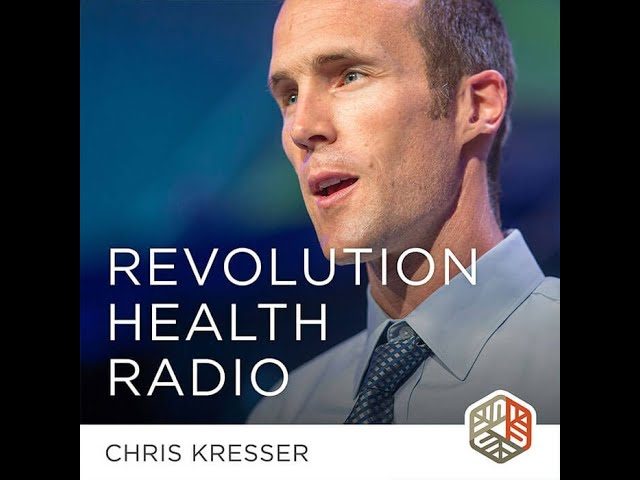
The Golden Key to Brain Health: Curcumin’s Surprising Cognitive Benefits

When you hear the word “curcumin,” what’s the first thing that comes to mind? If you’re like most people, you probably think of its well-known benefits for joint health and inflammation. But what if I told you that this powerful compound might be even more valuable for an organ you can’t see or touch – your brain?
As a functional medicine practitioner, I’ve spent years exploring the intricate connections between nutrition and cognitive health. While many of my patients are familiar with curcumin’s effects on musculoskeletal health, few know its potential to support brain function and protect against cognitive decline.
Curcumin, the primary bioactive compound in turmeric, has been the subject of extensive research in recent years. Scientists have uncovered a range of impressive neurological benefits, from reducing inflammation in the brain to potentially slowing the progression of neurodegenerative diseases like Alzheimer’s. These findings suggest that curcumin could play a significant role in maintaining cognitive function as we age.
However, it’s important to note that eating more curry won’t provide the full spectrum of curcumin’s brain-boosting effects. The amount of curcumin in turmeric is relatively small, and its bioavailability when consumed in food is quite low. To harness the full potential of curcumin for brain health, targeted supplementation is often necessary – a topic we’ll explore in depth later in this article.
In the following sections, we’ll delve into the science behind curcumin’s neuroprotective properties. We’ll examine how it supports brain health through multiple mechanisms, including its potent anti-inflammatory and antioxidant effects. We’ll also look at the growing body of research on curcumin’s potential role in preventing and managing neurodegenerative diseases.
By the end of this article, you’ll understand how curcumin can support cognitive health and how to incorporate it effectively into your brain-optimization strategy.
While it’s not a magic bullet, the evidence suggests that curcumin could be a valuable addition to a holistic approach to brain health, including a nutrient-dense diet, regular exercise, quality sleep, and stress management.
Let’s explore how this golden compound might help keep your mind sharp and your cognitive functions robust as you age.
How Curcumin Supports Brain Health
Curcumin’s benefits for brain health stem from its diverse biological effects. Let’s explore the key mechanisms by which this compound supports cognitive function and protects against neurodegeneration.
Antioxidant and Anti-inflammatory Effects
One of curcumin’s most powerful properties is its ability to combat oxidative stress and inflammation in the brain. These two processes are intimately linked and play a significant role in cognitive decline and neurodegenerative diseases.
Curcumin is a potent antioxidant, neutralizing harmful free radicals that can damage brain cells. It also boosts the body’s own antioxidant defenses, providing a two-pronged approach to fighting oxidative stress. (1)
But curcumin doesn’t stop there. It’s also a formidable anti-inflammatory agent. It inhibits key inflammatory pathways in the body, including NF-κB, cyclooxygenase-2, and inducible nitric oxide synthase. (2) This anti-inflammatory action is crucial for brain health, as chronic inflammation is a hallmark of many neurodegenerative conditions.
Protection Against Amyloid-beta Plaques and Tau Tangles
When it comes to Alzheimer’s disease, two of the main culprits are amyloid-beta plaques and tau tangles. These abnormal protein accumulations disrupt brain function and contribute to cognitive decline.
Here’s where curcumin really shines. Research has shown that curcumin can help reduce the formation of these harmful protein aggregates. In one study using an Alzheimer’s transgenic mouse model, curcumin decreased oxidative damage and amyloid pathology in the brain. (3) This suggests that curcumin could play a role in preventing or slowing the progression of Alzheimer’s disease.
Enhancing Neuroplasticity and Neurogenesis
Neuroplasticity – the brain’s ability to form new neural connections – and neurogenesis – the formation of new neurons – are crucial for maintaining cognitive function as we age. Curcumin supports both of these processes.
Studies have found that curcumin can increase levels of brain-derived neurotrophic factor (BDNF), a protein that plays a key role in neuroplasticity and neurogenesis. In one study, curcumin reversed impaired hippocampal neurogenesis in chronically stressed rats while increasing BDNF expression. (4)
Another study in aged rats found that curcumin enhanced neurogenesis and cognition, with implications for synaptic plasticity and growth. (5) These findings suggest that curcumin could help maintain cognitive function by supporting the brain’s ability to adapt and regenerate.
Recent research has further solidified curcumin’s neuroprotective effects. A 2024 study highlighted curcumin’s potential in neurodegenerative diseases, emphasizing its ability to cross the blood-brain barrier and directly affect brain tissue. (6) Another recent study explored curcumin’s epigenetic effects, suggesting it may influence gene expression patterns relevant to neurological health. (7)
Moreover, a comprehensive review published in 2024 detailed curcumin’s role in targeting neuroinflammation strategies in Alzheimer’s disease, further supporting its potential in brain health optimization. (8)
Curcumin’s multifaceted support of brain health—from reducing inflammation and oxidative stress to promoting neuroplasticity—makes it a promising tool for maintaining cognitive function as we age. In the next section, we’ll explore the specific cognitive benefits observed with curcumin supplementation.
Cognitive Benefits of Curcumin
While the mechanisms we’ve discussed are fascinating, you’re probably wondering: what does this mean for real-world cognitive function? Let’s explore the evidence for curcumin’s effects on memory, learning, and overall cognitive performance.
Improvements in Memory and Learning
Animal studies have provided compelling evidence for curcumin’s cognitive benefits. These studies allow researchers to control variables tightly and observe effects that might take years to manifest in humans.
One particularly interesting study looked at the effects of curcumin consumption on cognitive function in elderly Asians. The researchers found that curry consumption (high in turmeric and, thus, curcumin) was associated with better cognitive performance. While this study doesn’t prove causation, it provides an intriguing link between curcumin intake and cognitive function. (9)
Preserving Cognitive Function in Middle-Aged and Older Adults
As we age, maintaining cognitive function becomes increasingly important. Several human studies have investigated curcumin’s potential to support cognitive health in middle-aged and older adults.
A study published in the Journal of Psychopharmacology examined curcumin’s acute and chronic effects on cognitive function in healthy older adults. The researchers found that curcumin improved working memory and mood, with the benefits becoming more pronounced after 28 days of treatment. (10)
Another randomized, double-blind, placebo-controlled study looked at the effects of curcumin on cognition in healthy older adults over 12 months. While the overall results didn’t show significant differences between the curcumin and placebo groups, a subgroup analysis revealed that curcumin improved working memory in non-demented adults with mild, age-related memory complaints. (11)
Potential to Prevent Age-Related Cognitive Decline and Dementia
Perhaps the most exciting potential of curcumin lies in its ability to prevent or slow age-related cognitive decline and dementia. A groundbreaking 18-month study published in the American Journal of Geriatric Psychiatry investigated the effects of a highly bioavailable curcumin formulation on memory and brain amyloid and tau accumulation in non-demented adults.
The results were striking. Participants taking curcumin showed significantly improved memory and attention compared to placebo participants. Even more intriguingly, PET scans revealed significantly less amyloid and tau accumulation in brain regions controlling memory and emotion in the curcumin group. (12)
A comprehensive review of preclinical and clinical studies on curcumin’s efficacy for age-associated cognitive decline further supports these findings. The authors concluded that curcumin shows promise in preventing or ameliorating age-related cognitive decline, citing its antioxidant, anti-inflammatory, and neuroprotective properties. (13)
Recent research continues to bolster the case for curcumin’s cognitive benefits. A 2024 systematic review and meta-analysis of animal studies found that curcumin supplementation significantly improved cognitive performance in models of Alzheimer’s disease. (14) This adds weight to the potential of curcumin as a preventive or therapeutic agent for cognitive decline.
In the next section, we’ll examine curcumin’s potential role in Alzheimer’s disease prevention and treatment, an area of intense research interest given the growing prevalence of this devastating condition.
Curcumin for Alzheimer’s Disease
Given curcumin’s cognitive benefits and neuroprotective properties, it’s not surprising that researchers have turned their attention to its potential role in Alzheimer’s disease (AD). As our population ages, finding effective strategies to prevent and treat AD has become increasingly urgent.
Slowing Progression of Alzheimer’s Pathology
One of the most promising aspects of curcumin research is its potential to slow the progression of Alzheimer’s pathology. In transgenic mouse models of AD, curcumin has shown remarkable effects on key disease markers.
A pioneering study published in the Journal of Neuroscience found that curcumin reduced oxidative damage and amyloid pathology in an Alzheimer’s transgenic mouse model. The researchers observed that curcumin not only lowered oxidized proteins and interleukin-1β (a proinflammatory cytokine) in the brains of these mice but also decreased the overall amyloid burden. (15)
Reducing Amyloid Plaques, Tau Phosphorylation, and Neuroinflammation
The hallmarks of Alzheimer’s disease include amyloid plaques, neurofibrillary tangles composed of hyperphosphorylated tau protein, and chronic neuroinflammation. Curcumin appears to target all three of these pathological features.
A comprehensive review of curcumin’s effects on AD published in 2018 highlighted its multi-target approach. The authors noted that curcumin can bind to amyloid-β, preventing aggregation and promoting disaggregation. It also inhibits tau phosphorylation and aggregation, potentially preventing the formation of neurofibrillary tangles. Furthermore, curcumin’s potent anti-inflammatory properties may help mitigate the chronic neuroinflammation associated with AD. (16)
These findings were further supported by a 2024 systematic review and meta-analysis focusing on curcumin’s effects in animal models of AD. The analysis found that curcumin supplementation significantly improved cognitive performance and reduced pathological markers of AD in these models. (17)
Promising Results in Early Human Studies
While animal studies provide valuable insights, the real test of curcumin’s potential lies in human trials. Although research is still in its early stages, some promising results have emerged.
A double-blind, placebo-controlled study published in 2018 investigated the effects of a bioavailable form of curcumin on memory and brain amyloid and tau accumulation in non-demented adults. Over 18 months, participants taking curcumin showed significant improvements in memory and attention compared to the placebo group. Even more intriguingly, PET scans revealed significantly less amyloid and tau accumulation in brain regions controlling memory and emotion in the curcumin group. (18)
Another study, while smaller in scale, found that curcumin supplementation led to improved cognitive function in AD patients. The researchers observed improvements in the Mini-Mental State Examination (MMSE) scores of AD patients taking curcumin, suggesting a potential cognitive benefit. (19)
Recent Developments and Future Directions
The potential of curcumin in AD continues to be an active area of research. A 2024 study explored the use of curcumin-loaded lipid-based nanomedicine as a targeted therapy for AD, highlighting the ongoing efforts to enhance curcumin’s bioavailability and efficacy. (21)
While more research is needed, particularly in the form of large-scale human trials, the current evidence suggests that curcumin could play a valuable role in AD prevention and possibly treatment. Its ability to target multiple aspects of AD pathology—from amyloid aggregation to neuroinflammation—makes it a promising candidate for further investigation.
As we continue to unravel the complexities of Alzheimer’s disease, compounds like curcumin offer hope for new strategies to combat this devastating condition. In the next section, we’ll explore an intriguing approach to potentially enhance curcumin’s brain-boosting effects: combining it with omega-3 fatty acids.
Combining Curcumin with Omega-3 Fatty Acids
As promising as curcumin is on its own, there’s growing interest in combining it with other neuroprotective nutrients to enhance its effects. One particularly intriguing combination is curcumin with omega-3 fatty acids. Let’s explore why this pairing might be greater than the sum of its parts.
Rationale for Combining These Two Neuroprotective Nutrients
Curcumin and omega-3 fatty acids, particularly docosahexaenoic acid (DHA), share several neuroprotective properties. Both have potent anti-inflammatory effects and support brain function. However, they work through different mechanisms, suggesting that combining them could lead to complementary or synergistic effects.
A recent review published in 2024 highlighted the potential synergistic effects of curcumin and omega-3 polyunsaturated fatty acids on Alzheimer’s disease. The authors noted that both compounds have shown promise in reducing inflammation, oxidative stress, and amyloid-β accumulation, key factors in AD pathology. (22)
Omega-3s: Another Brain-Boosting Powerhouse
Before we delve into the synergy between curcumin and omega-3s, the independent benefits of omega-3 fatty acids for brain health are worth noting. Omega-3s, particularly DHA, are crucial components of brain cell membranes and play a vital role in neurotransmitter function.
Research has shown that omega-3s can reduce neuroinflammation and support cognitive function. A comprehensive review published in 2019 found that high DHA fish oil supplementation was associated with improved cognitive function in older adults, particularly those with mild cognitive impairment. (23)
Another review emphasized the importance of omega-3 fatty acids in the central nervous system, highlighting their role in neurodevelopment, cognitive function, and neuroprotection. (24)
Synergistic Effects of Curcumin and Omega-3s
The combination of curcumin and omega-3s offers more than just additive effects. A fascinating study published in 2015 found that curcumin actually enhances the synthesis of DHA from its precursor in the brain. This suggests curcumin could boost the brain’s omega-3 levels, potentially amplifying its neuroprotective effects. (25)
Moreover, curcumin and omega-3s have been shown to increase brain-derived neurotrophic factor (BDNF) levels, a protein crucial for neuroplasticity and cognitive function. By targeting this pathway through two different mechanisms, the combination might lead to more robust increases in BDNF and, consequently, greater cognitive benefits.
Potential for Enhanced Therapeutic Benefits
The potential synergy between curcumin and omega-3s isn’t just theoretical. A 2020 study investigated the effects of combined fish oil and curcumin supplementation on cognitive performance in older adults with overweight or obesity. The researchers found that the combination improved working memory compared to placebo, although participants with lower cognitive status at baseline primarily drove the effect. (26)
This study, while preliminary, suggests that combining curcumin with omega-3s could offer enhanced cognitive benefits, particularly for those already experiencing some cognitive decline.
A Path Forward for Brain Health
The combination of curcumin and omega-3 fatty acids represents a promising approach to supporting brain health and potentially preventing cognitive decline. Both nutrients have strong individual track records for neuroprotection, and their complementary mechanisms of action suggest that their combination could be particularly powerful.
In the next section, we’ll explore a cutting-edge form of curcumin that addresses one of its biggest limitations: poor bioavailability. This innovation could be the key to unlocking curcumin’s full potential for brain health.
NovaSol Curcumin: Enhanced Efficacy and Bioavailability
Despite curcumin’s promising benefits, a significant hurdle has limited its therapeutic potential: poor bioavailability. When consumed orally, standard curcumin is poorly absorbed by the body, quickly metabolized, and rapidly eliminated. This means that much of the curcumin we consume never reaches our brains in meaningful amounts. Enter NovaSol Curcumin, a cutting-edge formulation designed to overcome this limitation.
The Bioavailability Challenge
To understand why NovaSol Curcumin is a game-changer, we first need to appreciate the extent of standard curcumin’s bioavailability problem. When consumed orally, only a small fraction of standard curcumin is absorbed into the bloodstream, and an even smaller amount crosses the blood-brain barrier to reach brain tissue.
This poor bioavailability has been a major obstacle in translating curcumin’s impressive laboratory results into real-world benefits. It’s also why simply eating more curry or taking standard curcumin supplements may not provide the full spectrum of curcumin’s brain-boosting effects.
NovaSol: A Highly Bioavailable Formulation
NovaSol Curcumin addresses this challenge through an innovative approach: micellar solubilization. This technology encapsulates curcumin molecules within tiny spheres called micelles, which are much more easily absorbed by the body.
A study published in Plant Foods for Human Nutrition demonstrated the superiority of this approach. The researchers found that micellar solubilization significantly enhanced the transepithelial transport of curcumin in Caco-2 cells, a model used to predict intestinal absorption in humans. (27)
But the real test came in human trials. A study published in Molecular Nutrition & Food Research compared the bioavailability of NovaSol Curcumin to that of standard curcumin powder in healthy volunteers. The results were striking: NovaSol Curcumin showed a remarkable 185-fold higher bioavailability than the standard powder. (28)
Enhanced Efficacy in Reducing Inflammation and Oxidative Stress
The dramatically improved bioavailability of NovaSol Curcumin translates into enhanced efficacy. By delivering more curcumin to target tissues, including the brain, NovaSol Curcumin may provide more potent anti-inflammatory and antioxidant effects.
A follow-up study by the same research group further confirmed the superior bioavailability of micellar curcumin and explored potential synergistic effects with other compounds. While adding other bioactive compounds didn’t further improve curcumin’s bioavailability, the study reaffirmed the remarkable absorption of the micellar formulation. (29)
Promising Implications for Brain Health
The enhanced bioavailability of NovaSol Curcumin has exciting implications for brain health. By increasing the amount of curcumin that reaches the brain, this formulation could potentially amplify all of the neuroprotective benefits we’ve discussed earlier.
While specific studies on NovaSol Curcumin’s effects on brain health are ongoing, the improved bioavailability suggests that it could be more effective than standard curcumin in reducing neuroinflammation, combating oxidative stress, and supporting cognitive function.
Moreover, the increased bioavailability means that lower doses of NovaSol Curcumin may be needed to achieve therapeutic effects. This is particularly important for brain health, as it allows more curcumin to cross the blood-brain barrier and directly exert its neuroprotective effects on brain tissue.
In the next section, we’ll discuss important considerations regarding the safety and dosage of curcumin, including how the enhanced bioavailability of formulations like NovaSol might influence dosing recommendations.
Safety and Dosage of Curcumin
As with any supplement, understanding the safety profile and appropriate dosage of curcumin is crucial. Fortunately, extensive research has shown that curcumin is generally very safe and well-tolerated, even at relatively high doses. However, the introduction of highly bioavailable formulations like NovaSol Curcumin has important implications for dosing.
Curcumin’s Impressive Safety Profile
Numerous studies have demonstrated the safety of curcumin supplementation. A comprehensive review published in the Journal of Alternative and Complementary Medicine concluded that curcumin is safe and well-tolerated, even at doses up to 8 grams daily. (30)
Another study examining the safety and pharmacokinetics of a solid lipid curcumin particle formulation in both cancer patients and healthy volunteers found no dose-limiting toxicities at doses up to 4,000 mg daily. (31)
Typical Dosages Used in Human Studies
The dosages of curcumin used in human studies have varied widely, largely due to differences in formulations and bioavailability. For standard curcumin supplements, doses typically range from 500 mg to 2,000 mg daily, often divided into multiple doses.
A phase 1 dose-escalation study on liposomal curcumin in cancer patients used doses ranging from 100 mg to 400 mg/m² daily, demonstrating safety and tolerability across this range. (32)
However, it’s important to note that these doses are often necessary due to the poor bioavailability of standard curcumin formulations. A significant portion of these doses is not absorbed and simply passes through the body.
NovaSol: Lower Doses, Equal or Greater Efficacy
The enhanced bioavailability of NovaSol Curcumin allows for potentially lower doses while maintaining or increasing efficacy. Remember, NovaSol Curcumin has been shown to have up to 185 times higher bioavailability compared to standard curcumin powder. (28)
This means that a much lower dose of NovaSol Curcumin can potentially provide the same benefits as a higher dose of standard curcumin. For example, a 100 mg dose of NovaSol Curcumin might be equivalent to several grams of standard curcumin in terms of absorption and biological activity.
Considerations for Long-Term Use
While curcumin is generally safe, there are some considerations for long-term use, particularly at high doses. A study published in the Journal of Agricultural and Food Chemistry suggested that very high doses of curcumin over extended periods could potentially lead to some adverse effects. (33)
However, it’s crucial to note that the doses used in this study were far higher than typical supplemental doses, especially when considering highly bioavailable formulations like NovaSol Curcumin.
Personalizing Your Approach
As with any supplement regimen, it’s important to personalize your approach to curcumin supplementation. Factors such as your overall health status, medications you’re taking, and specific health goals should all be considered.
Lower doses of a highly bioavailable formulation like NovaSol Curcumin may be sufficient for general health and cognitive support. For specific therapeutic purposes, higher doses might be warranted but should be undertaken under the guidance of a healthcare professional.
A comprehensive review published in Phytotherapy Research in 2018 reinforced curcumin’s safety profile while highlighting the importance of considering individual factors when determining appropriate dosages. (34)
Conclusion
As we’ve explored throughout this article, the evidence for curcumin’s neuroprotective and cognitive benefits is compelling. From its potent anti-inflammatory and antioxidant properties to its potential role in preventing age-related cognitive decline and Alzheimer’s disease, curcumin is a promising natural compound for brain health.
Let’s recap the key points we’ve covered:
- Curcumin supports brain health through multiple mechanisms, including reducing inflammation and oxidative stress, protecting against amyloid-beta plaques and tau tangles, and enhancing neuroplasticity and neurogenesis.
- Human studies have shown that curcumin can improve memory and attention in both healthy adults and those with mild, age-related cognitive complaints.
- Curcumin shows particular promise in the context of Alzheimer’s disease, with research demonstrating its ability to reduce amyloid and tau accumulation in the brain.
- Combining curcumin with omega-3 fatty acids may offer synergistic benefits for brain health, opening up new avenues for nutritional approaches to cognitive support.
- NovaSol curcumin, with its dramatically enhanced bioavailability, overcomes one of the biggest hurdles in curcumin supplementation and may allow for more effective dosing at lower quantities.
- Curcumin has a strong safety profile, with studies showing it’s well-tolerated even at relatively high doses. However, the improved bioavailability of formulations like NovaSol may allow for lower, equally effective doses.
As our population ages and the prevalence of cognitive decline and neurodegenerative diseases increases, the need for effective, well-tolerated interventions becomes ever more pressing. Curcumin, particularly in its advanced formulations, represents a promising avenue in our quest to maintain and enhance supporte age.
While curcumin is not a magic bullet, the evidence suggests it could be a valuable addition to a comprehensive approach to brain health. When combined with a nutrient-dense diet, regular exercise, quality sleep, and stress management, curcumin supplementation may offer extra support for our cognitive well-being.
As always, it’s essential to consult with a healthcare provider before starting any new supplement regimen, especially if you have pre-existing health conditions or are taking medications.
The curcumin and brain health story is still unfolding, but the chapters written so far are promising. As research advances, we may uncover even more ways in which this golden compound can help keep our minds sharp and our cognitive functions robust throughout our lives.






